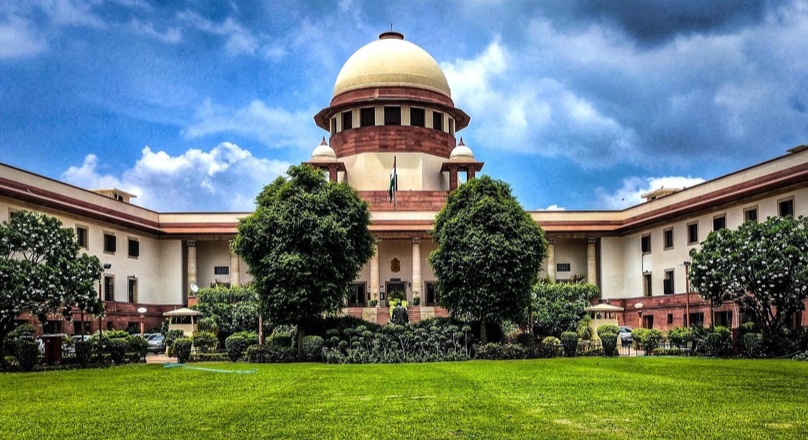Court Clarifies That a Chargesheet or Trial Court’s Cognizance Order Cannot Justify an Unconstitutional Arrest.
Supreme Court: Failure to Inform Arrest Grounds Violates Fundamental Rights, Renders Arrest Invalid
In a landmark judgment on February 7, the Supreme Court ruled that it is a fundamental right of every arrested individual to be informed of the grounds of their arrest at the earliest opportunity (Vihaan Kumar v. State of Haryana).
The Court emphasized that failure by the investigating officer to comply with this requirement constitutes a violation of Article 22(1) of the Constitution, thereby rendering the arrest invalid.
“The obligation to inform an arrested person of the grounds of arrest is a mandatory requirement under Article 22(1). Non-compliance with this constitutional mandate vitiates the arrest, and consequently, any subsequent remand orders passed by a criminal court are also rendered invalid,” the ruling stated.
Furthermore, the Court clarified that such a constitutional violation entitles the accused to bail, regardless of any statutory restrictions.
“When a breach of Article 22(1) is established, the court is duty-bound to immediately order the release of the accused. This forms an independent ground for granting bail, even where statutory limitations exist. Such restrictions do not curtail the court’s authority to grant bail when violations of Articles 21 and 22 of the Constitution are evident,” the Court underscored.
Supreme Court: Magistrate Must Ensure Compliance with Article 22(1); Illegal Arrest Does Not Invalidate Investigation or Trial
In its ruling, the Bench comprising Justices Abhay S Oka and N Kotishwar Singh emphasized that when an arrested individual is presented before a judicial magistrate for remand, it is the magistrate’s duty to verify whether the requirements of Article 22(1) of the Constitution have been fulfilled.
The Court held that any non-compliance with Article 22(1) renders the arrest illegal, and in such cases, the individual cannot be remanded to custody.
However, the Bench clarified that even if an arrest is deemed illegal due to such non-compliance, this does not invalidate the subsequent investigation, the filing of the chargesheet, or the trial proceedings.
Importantly, the Court underscored that the filing of a chargesheet or a trial court’s cognizance order cannot cure or legitimize a constitutional violation under Article 22(1).
“The filing of a chargesheet and an order of cognizance will not validate an arrest that is inherently unconstitutional, violating Articles 21 and 22(1) of the Constitution of India. The fundamental safeguards enshrined under Article 22 cannot be compromised,” the Supreme Court stated.
Supreme Court Lays Down Guidelines to Safeguard Rights Under Article 22
In the lead opinion authored by Justice Abhay S Oka, the Supreme Court outlined key principles to protect the fundamental rights guaranteed under Article 22 of the Constitution:
- Mandatory Disclosure of Arrest Grounds: Informing an arrested person of the grounds of arrest is a compulsory requirement under Article 22(1).
- Effective Communication: The grounds of arrest must be conveyed clearly and effectively, ensuring the arrested individual fully understands the basic facts, in a language they comprehend.
- Burden of Proof on Investigating Agency: If an accused alleges non-compliance with Article 22(1), the responsibility to prove compliance rests solely with the investigating officer or agency.
- Impact of Non-Compliance: Failure to comply with Article 22(1) constitutes a violation of the accused’s fundamental rights and the right to personal liberty under Article 21. Such non-compliance invalidates the arrest and any subsequent remand orders issued by a criminal court.
- Effect on Legal Proceedings: While non-compliance with Article 22(1) does not nullify the investigation, chargesheet, or trial, the mere filing of a chargesheet cannot cure a constitutional breach under Article 22(1).
- Magistrate’s Duty: When an arrested person is presented for remand, the judicial magistrate must verify compliance with Article 22(1) and other mandatory safeguards.
- Grounds for Bail: If a violation of Article 22(1) is established, courts are obligated to order the immediate release of the accused. This forms a valid ground for granting bail, even in the face of statutory restrictions. Such limitations do not override the court’s authority when constitutional rights under Articles 21 and 22 are breached.
In a concurring opinion, Justice N Kotishwar Singh further emphasized that the grounds of arrest should not only be provided to the accused but also communicated to a friend, relative, or any person nominated by the arrested individual. This obligation is codified under Section 50A of the Code of Criminal Procedure (CrPC), which mandates that the arresting authority inform a nominated person about the arrest.
Justice Singh noted that this safeguard enhances the effectiveness of Article 22(1) by enabling those informed to take prompt legal action to challenge the arrest and secure the detainee’s release. Failure to fulfill this requirement may render the arrest unlawful, he concluded.



